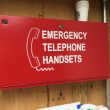NYC official welcomes D Block delay
An FCC proposal to pursue a public-private partnership to build a 700 MHz broadband wireless network for public-safety users officially is not on the commission’s December agenda, an omission that one New York City official believes is an encouraging sign.
With the FCC apparently not addressing the D Block matter in December, many question whether the commission will take action on the issue before it is reconstituted under the new presidential administration after its January meeting. FCC Chairman Kevin Martin acknowledged the likelihood of such a scenario during a press conference yesterday.
“At this point, I’m not sure there is any consensus or willingness among the other commissioners to move forward on [D Block rules],” Martin said during the press conference, according to a transcript provided by the FCC. “I think that it is important for us to do it but I haven’t gotten a sense from any of the commission offices that they are yet willing to move forward.
“If I do, I would certainly be anxious for us to do it as soon as we could–in January, if there was a consensus or a majority ready to move forward. But, I haven’t gotten that sense from the commissioners.”
Charles Dowd, deputy chief for the New York City Police Department, said he and officials from other large cities have applauded Martin’s desire to establish an interoperable broadband network but have disagreed with the commission’s approach to date, which included a failed auction of the D Block spectrum earlier this year.
Dowd said New York City and other large municipalities have questioned the viability of the public-private partnership strategy, particularly when the FCC relaxed the network coverage and reliability requirements in its latest proposal.
Instead of auctioning the D Block spectrum to a commercial operator or operators, Dowd and other big-city representatives have advocated licensing public safety’s 10 MHz of 700 MHz broadband spectrum—as well as the adjacent 10 MHz D Block frequencies, with the approval of Congress—directly to local agencies, which could pursue buildout plans that best fit their needs and resources.
“From our perspective, we didn’t think [the FCC’s public-private proposal] was a sound idea to begin with,” Dowd said during an interview with Urgent Communications. “We’re hoping that [a delay] will provide an opportunity for the public-safety community to get together and get some consensus on the best way to move forward on this spectrum.”
Although Dowd said he would like local public-safety agencies to be the licensees of the 700 MHz broadband wireless spectrum, he said each agency should commit to building its network to a national technology standard in an effort to improve interoperability. Dowd said he believes LTE would be the best option but would accept a mandate from the FCC to utilize another technology, such as mobile WiMAX.
“We’re comfortable with whatever technology the FCC chooses,” he said. “To commit to being anything but fully interoperable would be unfair, and we’re committed to [being interoperable].”
Many public-safety officials have indicated that they would be willing to accept lower levels of coverage and reliability on a broadband network, because voice radio is the means for transmitting mission-critical communications. Dowd said he believes such a mindset is misguided, because first responders will want their data communications to be as reliable as their voice communications after using the myriad applications that would be accessible over broadband networks.
“Once they’re exposed to certain capabilities, they’re going to expect it to be available to them all the time,” he said.
As a result, New York City wants its broadband network to meet public-safety standards for reliability—and not necessarily just for data applications.
“We’re exploring the idea of mission-critical voice over a broadband technology,” Dowd said. “We’ve met with a number of manufacturers that have said it can be done. We’re talking with the FCC about getting a proof-of-concept license.”
Currently, the public-safety broadband spectrum in the 700 MHz band is licensed to the Public Safety Spectrum Trust (PSST), an organization with no source of revenue that has been criticized for being financed by its advisor, Cyren Call Communications. The PSST board has arranged for another year of financing from Cyren Call—designed to fund the organization through a D Block re-auction—but that deal is contingent on FCC approval.
During an interview with Urgent Communications today, PSST Chairman Harlin McEwen said the FCC has not provided the organization with any guidance regarding the funding dilemma. Meanwhile, Dowd said he does not believe the PSST has represented the interests of large municipalities to date.
“From the beginning, there’s been no outreach [from the PSST] to the major cities,” Dowd said. “I’m not sure if it’s a philosophical problem or a funding problem.”
Previously, McEwen has acknowledged that the PSST’s limited funding has hindered its outreach abilities. But he also has said that there won’t be much to communicate until a D Block winner is identified.

















